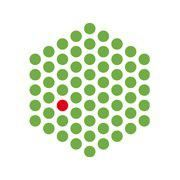Recorded webinar
Digital twins for drug repurposing by integrating mathematical modelling and machine learning: bridging the gap between in silico and real-world data
The rapid development of computational approaches has revolutionised the field of drug discovery and repurposing. Here I will show a practical application of digital twins built by the synergistic combination of mathematical modelling of the cell and machine learning techniques to identify potential drug candidates for repurposing and subsequently validate their efficacy using real-world data. After discussing the inherent challenges associated with traditional drug discovery methods and the need for alternative approaches I will introduce the concept of digital twins, virtual replicas of real biological systems, which leverage mathematical models to capture the intricacies of cellular behaviour and response to drugs. By integrating machine learning algorithms, these digital twins can be trained on vast datasets to predict drug effectiveness and identify promising candidates for repurposing. Moreover, I will emphasise the importance of validating these predictions with real-world data, obtained from biomedical databases, to ensure reliability and efficacy. The presentation aims to showcase the power of integrating mathematical modelling, digital twins, and machine learning for drug repurposing, paving the way for accelerated and cost-effective drug discovery processes.
About the speaker
Dr. Joaquín Dopazo is the director of the Computational Medicine Platform of Fundación Progreso y Salud. He holds a degree in Chemistry and a PhD in Biological Sciences. He has previously worked in public centres like the CIPF (Valencia), CNIO (Madrid) and companies, like GlaxoWellcome SA (Tres Cantos). His field of work is personalised medicine with an approach that includes systems biology, mathematical modelling and artificial intelligence, areas in which he has published more than 350 articles.
Resource type: Recorded webinar
Scientific topics: Computational biology, Personalised medicine, Machine learning
Activity log

 EMBL-EBI
EMBL-EBI
